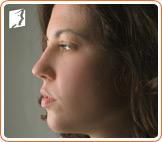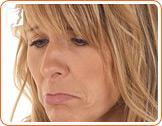
Menopause is a period in a woman's life that often comes with an increased risk of depression. While the reasons for menopausal depression are not fully understood, the problem can stem from a sufferer's personal or family history of depression and life stresses. Menopause has been pinpointed as a time when women are more likely to become depressed, because this is a period in which women experience a gradual decline in estrogen levels.
In order to avoid suffering from menopausal depression, it is important to be aware of the warning signs as well as the treatments that are available if you are affected by depression. Read over the following paragraphs for more information on menopause and depression.
What Is Depression and How Is it Related to Menopause?
The main reason for an increased risk of depression during menopause is hormonal imbalance. Estrogen hormones have an effect on our mental state because they regulate the body's levels of serotonin, which is the chemical in the brain that controls mood. Depression is often the result of a drop in serotonin due to a decline in overall estrogen levels.
What Are the Symptoms of Depression?
The symptoms of depression may include:

- Two or more weeks of very low moods
- A decreased interest or pleasure in activities
- Changes in appetite
- Changes in sleep patterns
- Fatigue or loss of energy
- Feelings of excessive guilt or worthlessness
- Extreme restlessness and irritability
- Thoughts of suicide
Many women suffer with these symptoms needlessly: depression should never be dismissed as a normal consequence of later life whilst there are remedies that can treat it.
Menopause can also exacerbate existing feelings of sadness because it often comes with a variety of unpleasant symptoms and the realization that infertility is near.
What Can I Do about Menopause and Depression?
There are several potential treatments for depression during menopause. They include:
- Medications
- Hormone replacement therapy (HRT)
- Dietary changes
If your depression during menopause is caused by physical changes (as identified by your doctor), a hormonal balancing program could best alleviate your mood problems and other symptoms of menopause. Treatments involving alternative medicine have been particularly successful in this regard, as they can give the body the support it needs to regulate production of its own hormones.
Sources
- WebMD.(n.d).Boyles, Salynn, and Dr. Louise Change. "Nearing Menopause? Depression a Risk". Retrieved from www.webmd.com
- University Health Service.(n.d)."Clinical Depression". Retrieved from www.uhs.berkeley.edu
- University of Michigan Depression Center.(n.d)."Women and Depression: Menopause". Retrieved from www.med.umich.edu.



